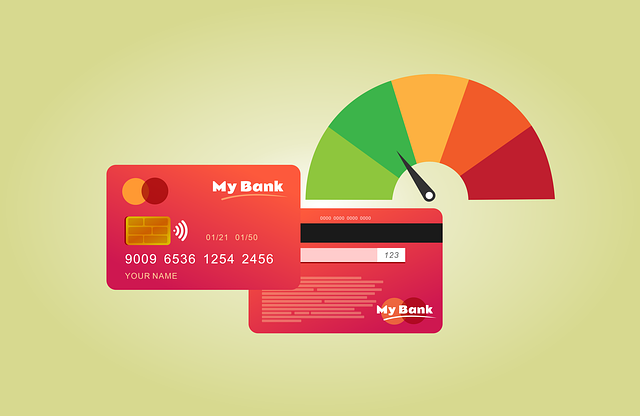What is a UCC Filing?
A UCC (Uniform Commercial Code) filing is a legal document that a creditor files to claim an interest in the debtor’s property. It is commonly used in business financing and involves collateral, such as company assets or bank accounts. These filings are public records and can significantly impact a company’s credit score and its ability to secure additional financing.
It’s crucial for companies to regularly monitor their UCC filings to ensure accuracy and promptly resolve any discrepancies. Inaccurate or outdated information on these filings can negatively affect credit scores and create obstacles when seeking new financing opportunities. By staying proactive and addressing any issues with UCC filings, businesses can maintain healthy credit profiles essential for future financial endeavors.
Uniform Commercial Code
The Uniform Commercial Code (UCC) is a set of standardized laws and regulations that govern commercial transactions and business practices in the United States. It provides consistency and clarity in areas such as sales of goods, leases, negotiable instruments, and secured transactions. While not a federal law, most states have adopted it.
In business lending, the UCC is used to establish the rights and obligations of parties involved in secured transactions, such as lenders and borrowers. It provides a framework for creating and enforcing security interests in collateral, which helps to mitigate risk for lenders and protect their interests in case of default.
Additionally, the UCC provides guidelines for the perfection of security interests, ensuring that lenders have priority over other creditors in the event of insolvency or bankruptcy. The UCC plays a crucial role in facilitating and regulating business lending transactions, providing a level of certainty and predictability for all parties involved.
How does a UCC Filing work?
Lenders file UCC liens by preparing a UCC-1 financing statement, which includes the borrower’s name and address, the lender’s name and address, and a description of the collateral being used as security for the loan. This statement is then filed with the appropriate state agency, typically the Secretary of State’s office.
Once filed, the UCC financing statement creates a public record of the lender’s security interest in the borrower’s collateral. This process allows lenders to establish priority over other creditors and provides notice to potential future creditors that the collateral is already encumbered.
Pros & Cons of Securing Business Loans with a UCC Lien
Pros:
- Easier access to financing.
- Lower interest rates.
- Flexibility in the use of funds.
Cons:
- Risk of losing assets.
- Limited ability to obtain additional financing.
- Potential impact on credit.
Can a UCC Lien harm my business?
UCC filings are often necessary to secure business financing. However, it may pose some risks to your business. You should know the potential risks before signing a business loan agreement that includes a UCC filing.
Impact on Business
A UCC lien can significantly impact your business financing and credit opportunities. When a creditor files a UCC lien, they are using your business assets as collateral, meaning they could be seized if you fail to repay the debt. This could make it harder for your business to obtain new loans or lines of credit because potential lenders may see the existing UCC filing as a risk.
Credit Score and Financial Risk
A UCC filing on business credit reports can also affect your company’s credit score and financial risk assessment. Since this type of filing becomes part of the public record, it may give other businesses insight into your financial situation and increase their perceived level of risk when doing business with you. Removing a UCC filing is crucial to improving your company’s financial standing.
Risk of Losing Assets if You Default
A UCC lien puts a business’s assets at risk if it defaults on the loan. This is because the UCC filing gives the lender a legal claim on the business’s assets as collateral for the loan. If the company cannot make payments and defaults on the loan, the lender can seize and sell the assets to recoup their losses.
This can include anything from inventory and equipment to accounts receivable and even intellectual property. Businesses need to understand the implications of a UCC lien and carefully consider the risks before using their assets as collateral for a loan.
How do I remove a UCC Filing?

In most cases, you can only remove a UCC filing once you’ve made the final payment on the loan. This means there is no existing obligation to the financial institution that filed the UCC lien.
Your lender may remove the lien for you, but this is not always the case. In addition, some commercial credit bureaus, like Dun & Bradstreet, won’t remove a closed UCC lien from your credit history until you request it or it’s been inactive for 11 years.
Ask Your Lender to File a UCC-3 Form to Remove the Form
To remove a UCC filing, you must ask your lender to remove the UCC lien using a UCC-3 termination form. This form is used to terminate, assign, or amend an existing UCC lien at the filing office.
You can request your lender to fill out and file this form with the appropriate state authority to remove the UCC lien from the public record. It’s essential to communicate clearly with your lender about the reason for requesting the removal of the UCC filing and to ensure that all necessary steps are taken to complete the process accurately and promptly.
Follow up with your lender to confirm that the UCC filing has been successfully removed. Once removed, all interested parties should be updated.
Secretary of State
If your lender fails to remove a UCC lien following an authenticated demand, you can take matters into your own hands by requesting the removal at the Secretary of State’s office. This involves filling out the necessary paperwork and providing evidence that the lien has been satisfied or is no longer valid.
Staying organized and following up with the Secretary of State’s office is crucial to ensure the UCC lien is properly removed from the public record. Keep records of all communication and documentation related to the process in case you need to provide proof of your efforts in the future. Be prepared for potential delays and proactively resolve any issues arising during the removal process.
Frequently Asked Questions
Here are the most common questions about how to remove a UCC Filing.
What is UCC Lien termination?
UCC lien termination involves the legal process of ending a creditor’s claim on a debtor’s collateral. This process requires the secured party to file a termination statement to remove the outdated UCC filing from public records. For businesses, terminating a UCC filing is crucial for future financing and improving their credit score.
It’s important to understand that this action essentially releases the collateral from the lender’s claim. By submitting a UCC termination form, which includes details such as the names of both parties involved and information about the initial financing statement, businesses can effectively remove the UCC filings from public records.
How do I find out there’s a UCC Lien on my business?
Public records and online databases are valuable resources for finding UCC filings related to your business. These sources contain important information about any liens or security interests that creditors may have in your company’s assets.
You can also review your business credit report from a credit reporting agency. By searching these records, you can uncover details about the filings made against your business.
When checking public records, look for documents related to UCC-1 financing statements, which represent a creditor’s claim on specific assets of your business. Online databases provided by Secretary of State offices can offer convenient access to UCC filing information.
Review Business Financing and Lease Agreements
Reviewing your business financing and lease agreements is crucial when searching for UCC filings. These documents often include clauses that disclose whether the lender has filed a UCC-1 statement as collateral for a loan or lease agreement with your company.
Pay close attention to any mentions of secured transactions or collateral in these agreements. If there are references to UCC filings, it indicates that the creditor has a security interest in certain assets of your business.
What’s the difference between a UCC Lien & UCC Filing?
Understanding the distinction between a UCC lien and a UCC filing is essential. A UCC filing is a legal document that lenders use to claim an interest in the debtor’s collateral. This public record provides information about the creditor, debtor, and collateral.
On the other hand, a UCC lien represents the security interest that a creditor holds in the borrower’s assets as a result of the UCC filing. It signifies that if there are outstanding debts or legal obligations, creditors can use certain assets to recover their dues.
Do UCC Filings expire on their own?
Unless it refiles, UCC Filings typically protect a lender’s collateral interest for five years. The UCC filing typically stays on your credit report for up to five years, even if it’s inactive. Many borrowers request the filing removed once the debt is paid off so it doesn’t hinder future financing options.
How do I dispute a UCC Lien?
You can’t dispute accurate UCC liens, but you have options if there are errors or the UCC lien was filed incorrectly. When disputing a UCC filing, it’s crucial to provide evidence that challenges the accuracy of the lien.
This evidence could include documents, records, or any information that supports your claim. For example, if you believe the filing contains inaccurate details about your debt or assets, gather relevant documents to prove otherwise.
It’s essential to act promptly when disputing a UCC lien. Delays in addressing the issue may lead to complications in resolving the dispute. For instance, if errors in the collateral listed on the filing are not rectified quickly, it could negatively impact your ability to secure future business financing.
How to Remove a UCC Filing – Final Thoughts
A UCC lien is often necessary for business loan approval. If you make your payments on time and pay the loan in full, you should be able to remove the UCC filing from your business credit report.
Removing a UCC filing involves specific steps, and understanding the process is crucial for safeguarding your business interests. Whether it’s disputing a UCC lien or finding ways around it, taking proactive measures is essential.
Contact us if you have more questions about removing a UCC filing or to apply for a small business loan. Our alternative business funding experts can help you find the best financing options for your goals.



















